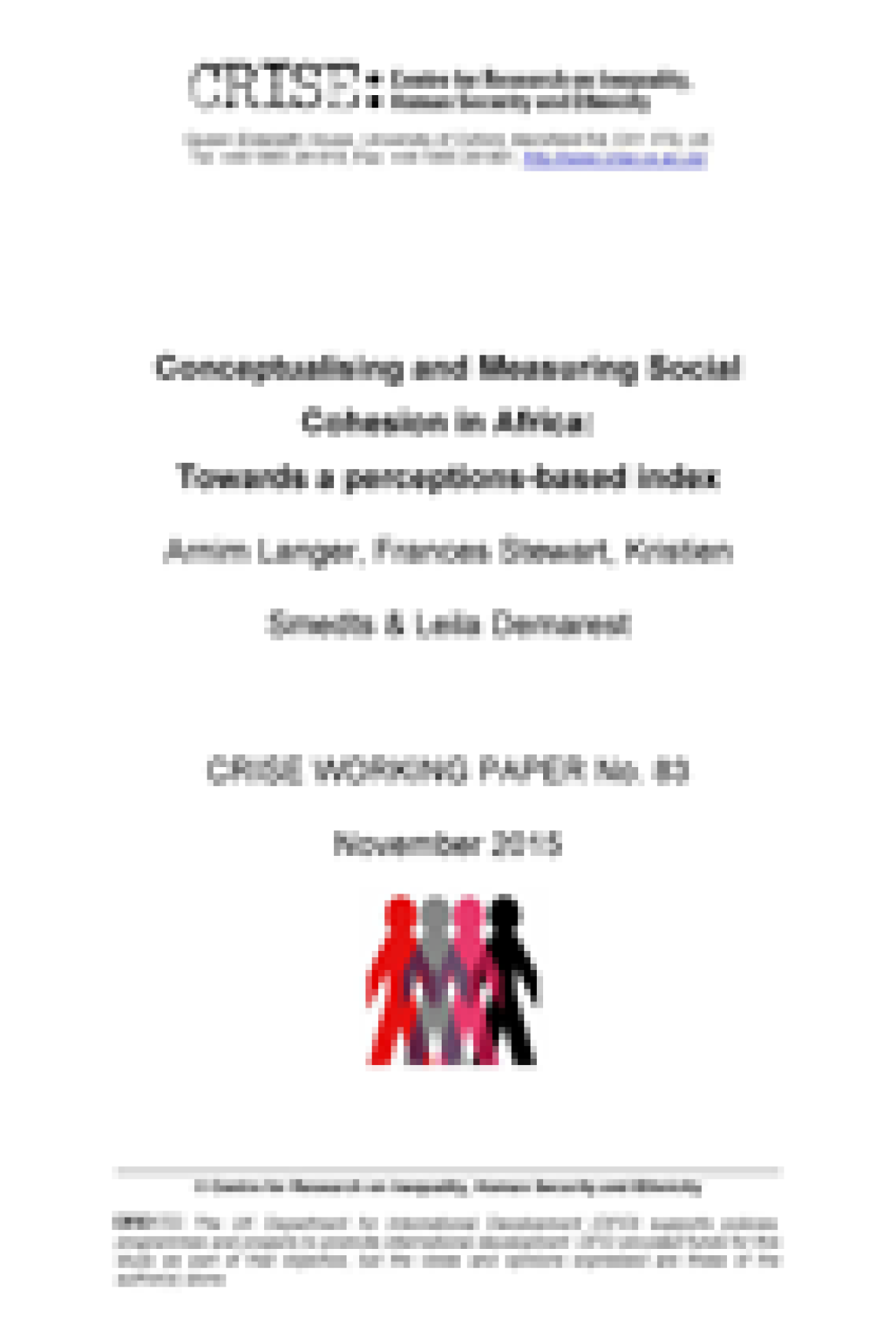New CRISE Working Paper Develops Index of Social Cohesion for 19 African Countries
A new working paper in the CRISE series develops an index of social cohesion based on survey data from 19 African countries, and investigates the relationship between the index and the likelihood of conflict
Social cohesion is a key concept in development studies. Weak social cohesion is often related to slow economic growth and (violent) conflict. However, so far few attempts have been made to measure this complex concept in a systematic manner.
'Conceptualising and Measuring Social Cohesion in Africa: Towards a perceptions-based index', written by Arnim Langer, Frances Stewart, Kristien Smedts and Leila Demarest, introduces an innovative method to measure national-level social cohesion based on survey data from 19 African countries.
It distinguishes three dimensions of social cohesion: the extent of perceived inequalities; the level of societal trust; and the strength of people’s adherence to their national identity. Importantly, the social cohesion index is based on individuals’ perceptions vis-à-vis these three different dimensions of social cohesion, rather than certain macro-level ‘objective’ indicators such as GDP per capita or Gini coefficients.
The paper develops two social cohesion indices: a national average Social Cohesion Index (SCI) and a Social Cohesion Index Variance-Adjusted (SCIVA); the latter takes into account the level of variation across different ethnic groups within countries.
The SCI and SCIVA are computed for and compared across the 19 African countries for the period 2005-12 on the basis of Afrobarometer survey rounds 3, 4 and 5.
The paper also investigates quantitatively the relationship between a country's levels of social cohesion and the occurrence of a range of conflict events. It finds that countries with low levels of social cohesion in a particular year according to the SCI are more likely to experience a range of different violent conflict events in the subsequent year.
The CRISE Network is an association of scholars and practitioners concerned with the fundamental economic, political and cultural causes of violent conflict.
It is a follow-up to the Centre for Research on Inequality, Human Security and Ethnicity, funded by DFID from 2003 to 2010 and based at ODID.

